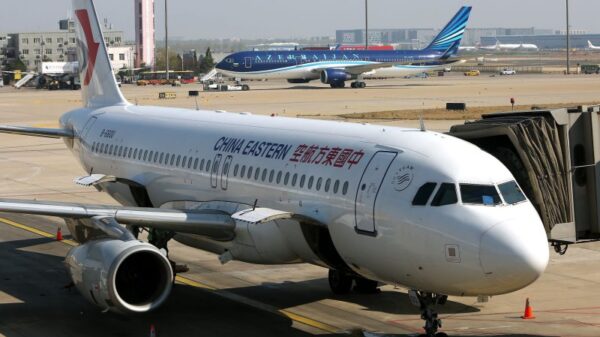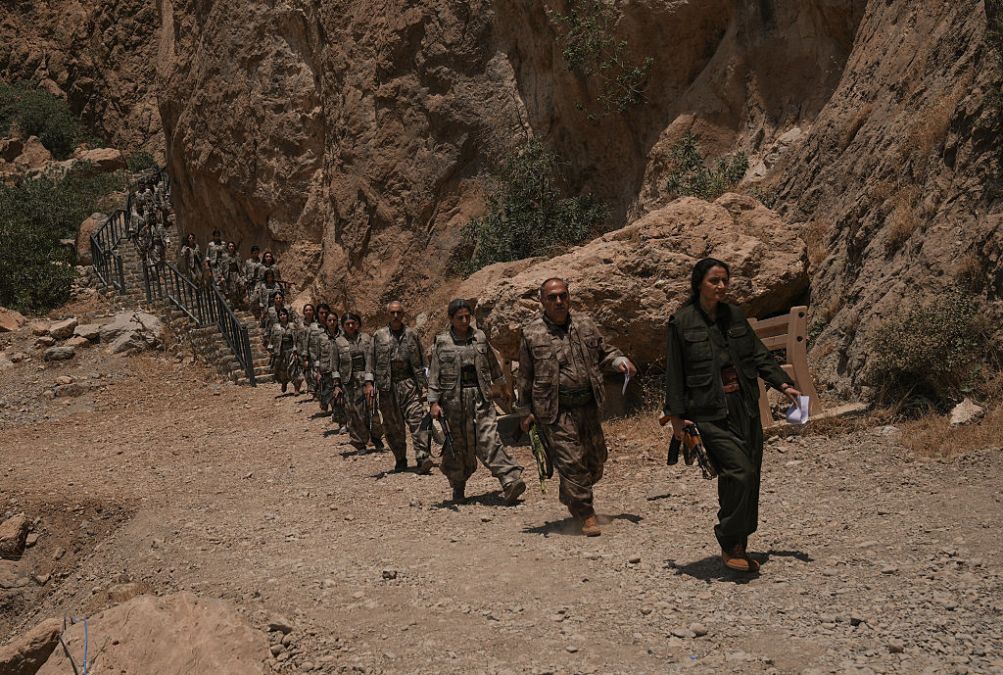BREAKING: In a historic turn of events, Turkish President Recep Tayyip Erdogan has announced the disarmament of the Kurdistan Workers Party (PKK), marking a potential end to a conflict that has claimed approximately 40,000 lives over the past four decades. Just days ago, around 30 Kurdish fighters ceremoniously surrendered their weapons in a cave complex near Sulaymaniyah, Iraq, signaling a monumental shift in Kurdish-Turkish relations.
The disarmament ceremony, held last week, saw PKK members clad in olive green uniforms burn their arms in a symbolic act of peace. “We destroy our weapons of our own free will as a decisive step toward the practical success of peace and a democratic society,” stated Bese Hozat, a prominent PKK leader. This drastic move comes following orders from Abdullah Ocalan, the imprisoned PKK founder, who has called for the group to disband and cease armed struggle.
With the PKK’s disbanding, Turkey is poised to escape the burdens of a costly conflict, estimated to have cost the nation nearly $2 trillion. Erdogan’s ruling coalition is now prepared to collaborate with pro-Kurdish lawmakers to finalize the disarmament process, a significant political pivot as these groups have historically been labeled as terrorists by Erdogan’s government.
This groundbreaking development reflects a shift in Erdogan’s approach to Kurdish politics, as he aims to incorporate Kurdish voices within Turkey’s democratic framework. The implications are profound; resolving the Kurdish issue could not only bolster Turkey’s position as a regional powerhouse but also enhance Erdogan’s grip on power ahead of the upcoming elections.
In the past, Erdogan has taken steps toward addressing Kurdish rights, including lifting bans on the Kurdish language and initiating secret talks with PKK leaders. However, previous peace efforts faltered amid tensions related to the Syrian civil war and U.S. support for Kurdish militias, complicating the landscape.
As geopolitical tensions rise, particularly surrounding conflicts in the region such as the ongoing war in Gaza, Turkey’s newfound alliance with Kurdish factions could reshape alliances and improve stability. Erdogan is leveraging this moment to solidify domestic support, especially following his recent crackdowns on opposition leaders.
Looking ahead, the disarmament of the PKK opens doors for economic development and investment in war-torn regions, potentially paving the way for a prosperous future for Kurds across Turkey, Iraq, and Syria. Kurdish leaders may finally be able to secure increased cultural rights and government investments, fostering a sense of hope after decades of conflict.
The global community is watching closely as these developments unfold. Erdogan’s unique opportunity to broker peace with the Kurds could redefine Turkey’s future and stabilize a historically tumultuous region.
Stay tuned as this story continues to develop, with significant implications for both Turkish politics and regional stability.





































































